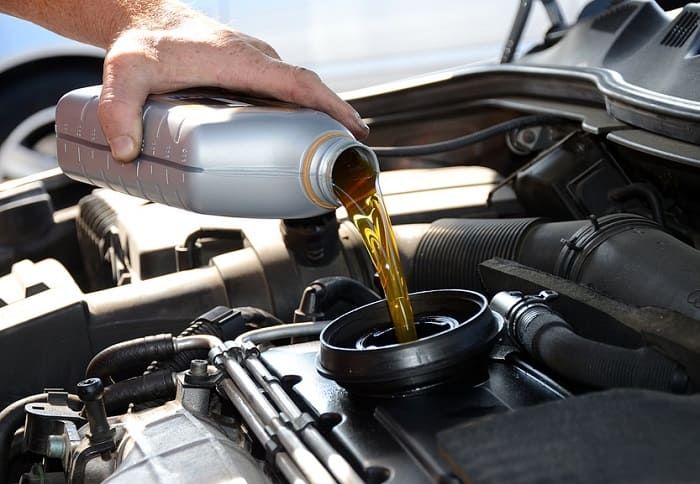Why We Need to Change Oil for Our Cars

Oil changes is averycommon andimportant part of vehicle maintenance. It probably seems like a no-brainer, and one of those things you can do yourself, but changing the oil in your motorcar iscrucial topreserving its life, performance and efficiency. Although essential, so many individuals overlook this standard process, but be careful as ignoring it has serious effects on your car.Here’s why you need to change your car’s oil.
1.ComponentLubrication
Engineoil is mainly used to lubricate the engine mounted moving parts.When your car’s engine is running, thousands of metal componentsare whirring at high speeds. Without proper lubrication, those parts would grind against each other, generating friction andheat.And, over time, this friction can create quite a bit of wearthatdecreases the engine’sefficiency, and may lead toirrevocabledamage. Well-lubricated parts are also vital to keeping everything in the engine harmonizing; lubricants minimize the friction between these surfaces and prolong the life ofthe engine.
2.Heat Regulation
While running, enginesmake a lot of heat. The oil helps soak up and disperse this heat, so the engine won't run hot. Over time, though, the oil breaks down and the temperature regulation becomes ineffective. Dirty, degraded oil can contributeto higher engine temperature, which could eventually lead to overheatingor even engine failure. Keeping up with routineoil changes ensures that theoil remains effective at performing its cooling role, keeping theengine temperature where it should be.
3.Removal of Contaminants
Oil grabs dirt, debris, andother contaminates as it flows through the engine. Combustion byproducts, dust or metal particles dueto engine wear can contribute to these impurities. These contaminants build up in the oil over time, transforming it into a thick, sludgy gunk. “Dirty Oil”can't appropriately lubricate theengine anymore, and those contaminants cause the engine parts to abradeand get damaged. By changing the oil, these harmful particles are removed, keeping theengine clean and protected.
4.Improved Fuel Efficiency
Clean oil when the oil is dirty because it generates friction and the engine does not work efficiently. A well-running engine takes less power to run, meaning improved fuel economy. Conversely, dirty oil, namely old oil, causes friction, which makes its respective engine work harder, in turn burning more gas. Regular oil changes will keep your oil clean for optimal fuel efficiency, saving you money in the parking lot.
5.Prevention of Engine Sludge
Engine sludge is a thick, sticky substance that builds up when oil breaks down and combines with other materials. Sludgecan block oil passages, preventing properlubrication and internalengine damage. Sludge buildup, in extreme cases, could leadto total engine failure. By replacing old,dirty oil before it turns into sludge, regular oil changes help prevent sludge from forming in the engine.
6.Extended Engine Life
A good engine can go forhundreds of thousands of miles, but not if you never change the oil. Routine oil changes mitigate the wear and tear on engine components, prevent overheating and facilitatea clean engine. Regularmaintenance in this case will spare you expensive repair services or overall engine replacement in the future.
7.Cost Savings
Some view an oil change as an unnecessary cost, however, in fact, changing it periodically is a practical and effectiveway of maintaining your vehicle. An oil change is a small price when compared to the costs of a blown engine dueto negligence. Regular oil changes mean less wear and tear on your car and lesschance of expensive repairs down the road.
In short, it isa simplebut significant maintenance task that has agreat impact on the performance and longevity of your car.And ensuring the motor runs smoothly and efficiently, fresh oil lubricatesengine elements and controls heat and expels contaminants.Regularoil change intervals will prolong the life of your car, improve its fuel mileage, and keep you from having to spend more money on repairs. So the next time your car is due for an oil change, don’t put it off — your engine will be grateful.
 Disclaimer:
Disclaimer:
The content provided on our blog site traverses numerous categories, offering readers valuable and practical information. Readers can use the editorial team’s research and data to gain more insights into their topics of interest. However, they are requested not to treat the articles as conclusive. The website team cannot be held responsible for differences in data or inaccuracies found across other platforms. Please also note that the site might also miss out on various schemes and offers available that the readers may find more beneficial than the ones we cover.
Related Websites
-
 Travel
TravelPlanning a Family Vacation: A Guide to Creating Lasting Memories
Planning a family trip can be fun but also overwhelming. It's a chance to make lasting memories, enrich relationships and break away from the daily grind. But designing a trip thatmeets everyone's interests and needs require a lot of planning and consideration. Whether you envision a beach getaway, a cultural adventure or an outdoor retreat, here's a complete guide to planning a family vacation everyone will love.1.Plan Your Trip TogetherGet everyone involved in the first step of planning a successful family vacation by working together to makethe right decision. Gather as a family and discuss possible destinations,activities and budgets. Give each family member an opportunity to express what they would like to experience on the trip. Young kids maybe thrilled about theme parks, teens boom out on adventurous stuff like hiking or water sports. Parents may emphasize relaxation or exploring cultural sights. Getting everyone's input helps you to plan a vacation that will satisfy all ages and interests.2.Select theIdeal DestinationPicking the right destination makes up a large part of anyfamily trip. Take into account things like how long it will take to get out there, the weather, and whether there are activities to do out there a family would like to have. If you're traveling with younger kids, you may want the place to be fast and easy to reach, with plenty to see and do for kids. For those with teens, maybe a place with adventure but also time out is best. Popular places for family vacations include beach resorts, national parks and cities with rich cultural and historical experiences.3.Plan Activities Everyone Will Be Involved inAperfect family vacation walks the fine line of fun and relaxation. Once you have selected a destination, research activities and sights thatareinterest-specific. To illustrate, a beach trip may have swimming, sandcastle construction, and beach volleyball. When you travel to a city, you might visit museums, local markets, and live performances. Make sure you schedule some downtime so people can feel refreshed and energized.4.Prepare for the UnexpectedEven with all the planning in the world, problems can arise on a family vacation when you least expect it. Flight delays, bad weather, and even minor illnesses can derail your plans, so you're going to want to be prepared. Have a fallback plan for activities if bad weather arrives, and pack a mini emergency kit with band-aids, pain relievers and a portable phone charger. Flexibility and a good attitude are everything when things don't go as planned. The idea being quality time together as a family.5.Record the MomentsThis is why a family trip is the perfect opportunity to make lasting memories. We used a camera to snap pictures and videos of our travels. Be sure to write things down in a travel journal or scrapbook there will be souvenirs to help jog your memory of the fun time you had and you can have fun together when you were traveling.6.Reflect and ReconnectSpend some time after the vacation discussing as a family about the experience. Tell about your highlights and whatyou learned from the trip. Take this time to strengthen family ties. To the contrary, planning a family trip — and having fun on one — can hit both those notes and leave you with memories you'll cherish for a lifetime.To sum up, organizing a family holiday takes a lot of time and effort, but the best part about it is really worth it. Involve everyone in the planning process, create a budget,pick a suitable destination and be ready for the unexpected, to ensure a fun and memorable trip for the whole family. Go ahead and plan and pack your family adventure today and prepareto create lasting memories. -
 Home & Garden
Home & GardenAll-Round Excellence of Saatva Mattress
With everything that is happening in the world around us, many do not get the amount of sleep that they need. Also if you are looking for peaceful, rejuvenating sleep, one mattress that seems to hit the mark with people time and again is the Saatva Mattress. This is not just a bed, this is a symbol for comfort, durability and innovation. -
 Automotive
AutomotiveLaFerrari vs Ferrari Enzo: A Clash of Generations in Ferrari’s Masterpieces
Few names in the automotive lexicon conjure as much respect as Ferrari, whose masterpieces include the Enzo and LaFerrari, bookend hypercars that bookend a decade-long breakthrough in high-concept performance technology. These cars are so much more than fast cars, though; they are churning testaments to Ferrari’s uncompromising nature, each one representing the technological and philosophical most of the time of its life. The two also share the prancing horse badge, and a heritage embedded in F1, but fundamentally the way they go about finding speed, and the way they feel and engage the driver are worlds apart. But comparing them is more than just a matter of horsepower and lap times; it’s a study in how automotive ambition mutates.
Featured Articles
-
 Travel
TravelComprehensive Plans for Your Dream Vacation to Disneyland California
-
 Travel
TravelMust-Try Rides and Attractions at Disneyland: The Ultimate Guide
-
 Health & Wellness
Health & WellnessHow to Relieve Bloating and Gas Naturally
-
 Automotive
AutomotiveWinter Tires: A Must-Have for Safe Winter Driving
-
 Home & Garden
Home & GardenFurniture Worth Buying at Sears Furniture Outlets
-
 Automotive
AutomotiveReasons Why Costco Tires Are Your Optimum Selections
-
 Automotive
AutomotiveThings to Pay Attention to When Buying a Used Pickup Truck
-
 Travel
TravelSteps to Get Discounted Airfares for Seniors








